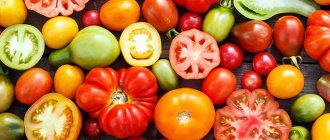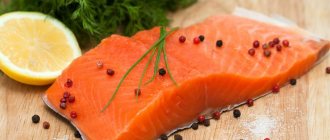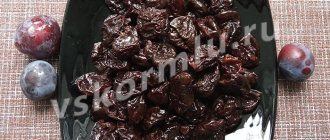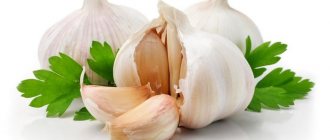The mother's body needs to recover after childbirth. Grapes have a lot of vitamins and beneficial elements that prevent the development of many diseases and normalize the functioning of the body. In addition, sweet and sour fruits will lift your spirits, relieve depression and add strength.
However, most breastfeeding women have a question about whether it is possible to eat grapes while breastfeeding. Indeed, during lactation, especially in the first months of a child’s life, nutrition should be treated very carefully. When feeding, substances enter the newborn’s body along with the mother’s milk.
Many products have a negative effect on the baby’s still fragile body. They cause allergies, cause colic and other digestive disorders.
Let's figure out whether a mother can eat grapes while breastfeeding.
Beneficial features
Doctors are convinced that grapes are a healthy product that has dietary and healing properties. The berries are used for diseases of the kidneys, liver and bronchi. The fruits help get rid of insomnia, constipation and heart failure.
Interestingly, the chemical composition of grapes is similar to the consistency of breast milk. Both berries and milk contain three essential vitamins that are involved in the hematopoietic process and stabilization of blood pressure. These are folic acid (B9), vitamins P and K.
Grapes contain a lot of vitamins and macroelements, each of which has a beneficial effect on the body of mother and baby.

| Vitamins and macroelements | Useful action |
| A | Improves skin structure, develops and strengthens bones, supports vision |
| Group B | Stabilizes gland metabolism and liver function, regulates the activity of nerve cells, |
| B6 (folic acid), P, K | Promotes normal blood clotting, relieves insomnia and headaches |
| C (ascorbic acid) | Strengthens immunity, fights diseases |
| E | Accelerates lactation, regulates the functioning of hormones |
| PP (nicotinic acid) | Normalizes blood pressure, muscle function, liver |
| Calcium | Supports normal functioning of the nervous system; improves the condition of hair, nails and skin |
| Zinc | Promotes normal metabolism, synthesizes and breaks down protein, carbohydrates and fats |
| Magnesium | Ensures bone growth, development and function |
| Selenium | Restores liver and pancreas cells, has a positive effect on the thyroid gland, prevents the appearance of many diseases and the newborn |
| Potassium | Regulates oxygen metabolism, improves brain activity and memory. |
| Antioxidants | Slow down oxidation and aging, remove toxic substances from the body, relieve fatigue |
Fruits increase hemoglobin levels and improve blood composition. Cleanse the body of accumulated toxins and support the immune system. And natural grape juice will cure heart and vascular diseases.
Allergy risk
Another negative consequence is an allergic rash. Usually, rashes appear within 24 hours after consuming an unwanted product, but in some cases the reaction can last up to three days.

Food allergies in infants
Usually, when you stop using the product, the rash can go away on its own, so if grapes are not suitable as a food product for a nursing mother, then by eliminating them from the diet, you can notice a gradual disappearance of the rash.
It is worth noting that the child’s gastrointestinal tract gradually adapts to new products, so even if there is a negative reaction at the first attempt, you can try to reintroduce the product after a month.
Negative consequences
However, eating grapes during lactation can also lead to devastating consequences. Intestinal function is disrupted and dysbiosis appears. The main danger is allergies. The body of a newborn, especially in the first three months of life, is susceptible to allergic reactions to many foods.
Eating grapes can cause problems with intestinal upset, increased gas production and intestinal colic in the baby. Please note that berries contain high levels of sugar, so excessive consumption of this fruit often leads to weight gain.
Doctors do not recommend eating grapes for people with:
- diabetes mellitus;
- obesity;
- gastrointestinal disorders;
- stomach ulcer.
To avoid allergies and other negative consequences, follow a few simple rules. If you follow the recommendations, grapes can be consumed without fear for the health of the mother and the development of the baby.
Recipes for dietary dishes with grapes
There are many original dishes, but not all of them are possible while breastfeeding. One of the dietary recipes that you can use while breastfeeding is chicken breast salad with grapes. It includes:
- 150 g boiled chicken breast;
- 100 grams of hard cheese;
- 150 grams of grapes (preferably the raisin variety);
- 1 teaspoon Dijon mustard;
- 1 coffee spoon of honey;
- 1 tablespoon lemon juice;
- 2-3 tablespoons of sour cream;
- greens, salt, pepper to taste.
It is worth considering that if a child is allergic to honey, it is better not to use it when preparing a salad. You can also omit mustard if there is incompatibility.
The salad is prepared quite quickly, so its preparation will not be difficult even for a very busy mother. The chicken breast must be cut into small pieces, the cheese grated on a coarse grater, and the grapes cut into halves. Next you need to add mustard, honey and lemon juice.
Next, you need to add salt, pepper and herbs to taste and pour sour cream over the salad. After adding all the ingredients, the salad must be mixed again.
There is also an easier salad recipe suitable for pregnant women. Includes:
- 200 grams of soft cheese without salt;
- 200 grams of dark grapes;
- a bunch of any lettuce;
- 1 tablespoon freshly squeezed lemon juice;
- 40-60 grams of walnuts;
- 1 tablespoon olive oil;
- 2 tablespoons of honey.

If necessary, you can remove honey from the recipe. The cooking process involves laying out a bed of lettuce. Next, you need to cut the cheese into cubes and place them on the leaves. Mozzarella is best suited for salad.
At the next stage, pre-washed grapes need to be cut in half and placed on top of the cheese. Next, you will need to prepare the dressing - to do this, mix nuts, honey, lemon juice and olive oil in a blender and grind until a homogeneous sauce is formed. The finished sauce is poured over cheese and grapes on a bed of lettuce.
How to eat grapes during lactation
- Wash berries thoroughly before eating;
- In the first 3-4 months you should refrain from eating fruits;
- Start introducing the product into your diet with natural grape juice. At the same time, dilute the juice with water in a 1:1 ratio.
- Drink the juice in the morning on an empty stomach. Then monitor the newborn’s well-being for one or two days;
- If there is no allergy, then you can gradually introduce grapes into your diet. If so, repeat the procedure after at least two months;
- You can switch to berries after two or three doses of juice. First, you are allowed to eat one to three berries;
- The daily norm is 100 grams, the weekly norm is 200;
- It is not recommended to eat berries more than twice a week.
Breastfeeding mothers can eat grapes. However, you should be careful when introducing such a product into your diet. After all, the fruit contains an allergen, a large amount of sugar and can negatively affect digestion.
The best option is freshly squeezed grape juice and homemade fruits grown in your own garden or vegetable garden. These grapes can be consumed by nursing mothers without risk to health, because the product does not contain preservatives, dyes or other harmful elements.
If you managed to introduce grapes to the menu, then eat the fruit not only separately, but also feel free to add it to salads, cottage cheese or yogurt.
You will receive the necessary dose of vitamins and diversify your diet. Subscribe to our VKontakte group
How to select and store

When buying grapes at the market or in a store, lightly shake the bunch you like. If a lot of berries fall off, the grapes are overripe. Pay attention to the stalks - darkened areas of the skin indicate the beginning of the process of rotting. But there is no need to be afraid of a white coating on the berries; on the contrary, it is a sign of freshness. However, it is necessary to wash the berries, because they may have been treated with chemicals against insects.
Dark spots (not to be confused with spots) appear when the grapes are pouring on the branch. This means that it has ripened under the sun, is distinguished by its sweetness, but cannot be stored for long periods of time.
Fresh grapes are not stored for long - up to 5 days at room temperature. You can increase the shelf life by spreading the bunches on a wooden board in the refrigerator. Then the berries will last up to 2-3 weeks. If necessary, the berries can be frozen by first washing and drying, but some of the vitamins are lost. Another harvesting option is to dry the berries to get dried fruits (raisins). This product is also useful for a nursing mother and baby; it has a lower content of vitamins, but a higher concentration of minerals.
It is preferable to squeeze grape juice yourself to be sure of its quality and the absence of harmful additives. Ready-made juices in the store are made from reconstituted raw materials; their beneficial qualities are inferior to freshly squeezed drinks. If you still decide to buy ready-made juice, give preference to the drink in a glass container. There should not be much sediment at the bottom, the color should be amber or light yellow, transparent. Pay attention to the composition - only grape juice or concentrated puree and water should be indicated there, without adding sugar, preservatives or other ingredients. If you are not sure about the quality of the purchased grape juice, do a test - add a little baking soda. Natural juice will darken noticeably.
Possible harm of grapes for a nursing woman and baby
In addition to a lot of positive qualities, eating these berries can bring unpleasant surprises to mother and baby.
At the top of the list of troubles is allergies. Unfortunately, grapes are quite an allergenic product. The body of an infant cannot always cope with toxins, so negative reactions to many foods are not uncommon. Allergic reactions can manifest as simple rashes or more severe forms (suffocation, anaphylactic shock).
Another disadvantage of berries is the large amount of sugar in the composition. On the one hand, carbohydrate foods give the mother the strength to care for the baby, and on the other hand, they provoke fermentation and gases in the body of the mother and baby. If the baby is prone to colic, then carbohydrate foods will aggravate the situation. Also, eating grapes is not recommended if both mother and baby are overweight.
Grapes rarely cause fermentation in the stomach on their own. This phenomenon occurs if you incorrectly combine berries with other products. You should not eat grapes at the same meal with fatty foods, semi-acidic fruits and berries, dairy products, cucumbers, fish dishes, and mineral water.
The acid contained in the berries has a destructive effect on tooth enamel. To avoid problems with your teeth, you need to brush them thoroughly after each meal involving grapes. If it is not possible to use a brush and paste, then you need to rinse your mouth well with water or a soda solution.
High glucose content
Not only can this fruit cause allergies, it also contains a lot of sugar. For example, black grapes contain more than 15%, while apples contain a little more than 10%. Sugar promotes increased gas formation, which is not so dangerous for adults, but this product will cause colic in a baby after breastfeeding.
INTERESTING: is it possible to eat cucumbers while breastfeeding?
A large amount of glucose in the intestines causes fermentation, especially if you combine grape fruits with other sweet and sour fruits or berries - pears, apricots, apples, blueberries, peaches, cherries, blueberries and strawberries (we recommend reading: can a nursing mother have blueberries?) . Eating these fruits together can further increase the formation of gases in the intestines. In combination with grape fruits, some foods can generally cause intestinal upset - soda, milk, beer, melon and cucumber, as well as fatty foods, such as fried fish (see also: can a nursing mother eat melon during breastfeeding?).
READ ALSO: Can a nursing mother eat pears in the first month?
Grapes are sweet and sour, so they disrupt the acid-base balance in the mouth, which leads to damage to tooth enamel. To avoid the development of caries, after eating these fruits you need to rinse your mouth with an acid-neutralizing soda solution or at least plain water.
Rules for introducing the product into the diet of a nursing mother
When the baby has passed the age threshold of 3 months, the mother can try grapes (we recommend reading: nutrition for a nursing mother 3 months after childbirth). The first dose should be minimal - no more than 3-4 fresh berries or one glass of grape decoction. Subsequent meals should not contain any allergenic foods so that it is possible to correctly assess the baby's reaction. If within 24 hours he does not develop a rash or skin itching, restlessness, swelling or any changes in stool, for example, with foamy inclusions, then a nursing woman should try to include grapes in her diet.
It is important to know that sometimes it is not the product itself that provokes an allergic reaction. The danger is posed by a large volume of fruit eaten at one time. All mothers during breastfeeding need to adhere to the following basic rules:
- Fruits and vegetables that are red and orange in color are highly allergenic foods; they should be consumed with caution no earlier than 6 months after birth (we recommend reading: what fruits can a nursing mother of a newborn eat?).
- Yellow fruits are not so dangerous if consumed in moderation.
- Greens are considered low-allergenic foods and can be eaten in any quantity.
From this we can come to the conclusion - first try white varieties, if everything went well, you can experiment with dark ones. Red grapes can be included in the diet no earlier than 6 months after birth.
Recommendations for use
Nursing mother
Some pediatricians do not recommend consuming melon until six months.
However, if the baby responds well to the mother’s consumption of fruits and vegetables, then you can start enjoying melon already in the third month of the child’s life. It is recommended to gradually introduce melon into the diet of a young mother. You need to start with a small slice, which is eaten separately from other food. During the day, changes in the baby’s condition are monitored; if everything is in order and he responded well to the new product, then the next day you can allow yourself two small slices of the fragrant fruit.
It is important to remember that melon should not be eaten immediately after a meal or before a meal. This fruit should not be mixed with dairy and fermented milk products, alcohol and cold drinks.
It is best to eat melon as a second breakfast or afternoon snack, then it will only bring benefits to the body.
If, after the mother eats melon, the baby develops skin rashes, diarrhea, or bloating, then introducing this product into the diet should be delayed for one month. If after a month the consequences are repeated, then the melon is completely excluded.
Due to the high sugar content in the pulp, the product can cause fermentation processes and cause increased gas formation in the baby
To avoid this, it is important not to overdo it with the amount of melon you consume.
For kids
Having figured out the diet of a nursing mother, wouldn’t it hurt to find out when you can give melon to babies?
Most experts recommend introducing this delicacy into children's menus when the child turns one year old.
And, according to the famous pediatrician Komarovsky, it is not recommended to give melon to children under two years of age. The doctor also does not advise getting carried away with early melons in order to reduce the entry of large amounts of nitrates into the body. The choice is up to the mother. In any case, the child should only be given a small amount of pulp.
Attention! Melon is offered to the baby separately from other products, preferably as a second breakfast or afternoon snack. The very first serving of melon should consist of one teaspoon of pulp
Then it is necessary to observe the baby's reaction for one or two days. In the absence of allergies, a child 1-2 years old can be given a maximum of 100 g of pulp per day, and older children no more than 200 g of treats per day.
Melon is a tasty and aromatic delicacy
However, this product must be introduced into the diet of a nursing mother carefully, then it will bring maximum benefit to the body.
Top
Eating pumpkin by mother while breastfeeding. Can this vegetable be added to a child’s diet and when?
Introducing watermelon into the diet of mother and child: can this berry be consumed while breastfeeding?
Melon during breastfeeding: can it be consumed during lactation and at what age should it be given to a child?
Is it possible to eat pumpkin in the first month after childbirth, what are the benefits of the product during breastfeeding, how to choose and store the vegetable?
Is it possible to have watermelon in the first month while breastfeeding? What are the benefits and what should mother and child be wary of?
Fragrant melon - can a mother eat it when breastfeeding a newborn in the first month?











